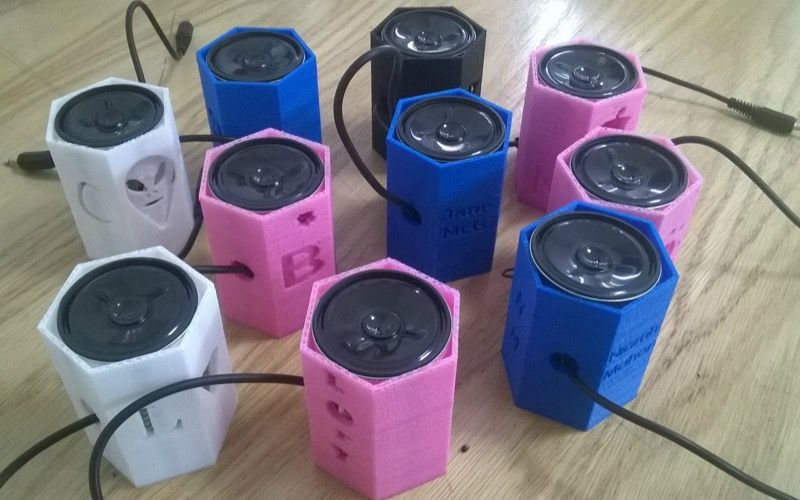Secondary School Girls Enjoy Engineering Eye-Opener
Posted on: 27 July 2015
Trinity College Dublin’s School of Engineering welcomed a group of secondary school girls from four schools (Our Lady’s Terenure, Santa Sabina, Sutton, Lucan Community College and St. Michael’s, Claremorris) for its seventh annual two-week eye-opener into the wonderful world of engineering.
The fourth- and fifth-year girls learned about the prospects and opportunities open to engineers while enjoying demonstrations and talks and engaging in problem-solving exercises and design challenges.
A favourite this year was the portable speaker project, where each student designed and built a speaker to plug into their mobile phone. The project covered design, basic theory, and electronic circuit construction and soldering, before the students used 3D printers to finalise their custom casing designs.

Course Co-Ordinator and Assistant Professor in Mechanical & Manufacturing Engineering at Trinity, Kevin Kelly, said: “With a 5:1 ratio of males to females in Irish engineering, we must all work harder to create a more balanced demographic. As well as helping address the supply shortage of graduate engineers, more female students and practitioners will result in increased diversity which leads to better decisions as well as more innovative designs and outcomes,”
Professor Kelly believes the course is going from strength to strength for three main reasons: It is free of charge, ensuring access is not restricted by finance, meaningful and lasting partnerships continue to develop with secondary schools, and students are invited to partake on the basis of ability, rather than pre-existing motivation. As a result, ‘don’t know’ and ‘maybe’ students are invited in preference to those who already have strong inclinations towards studying engineering.
The programme is facilitated by staff members and graduate students and by a team of undergraduate summer interns. Some of this year’s interns had participated in the programme when they were in school, and as such were in a special position of having been on ‘both sides of the table.’
Katie Petherbridge, a second-year student in the Engineering with Management degree at Trinity, said: “I initially had my heart set on nursing and didn’t really have much of an interest in engineering. But when I participated in the summer programme I realised that there was so much more to engineering than I had thought. I couldn’t wait to come back for a second year, and by then I was pretty sure of what I wanted to do! I really enjoy what I’m doing now, even though it is pretty hard work at times, and being able to talk to the girls as someone who was recently in their shoes was really fun too. I loved designing activities for them to do, to show them what engineering can be like, and also talking about my own experiences in my course – such as showing them the resonator guitars that we designed and built for our second year project.”
Kirsty Monaghan, a third-year student in the Electrical and Electronic Engineering programme at Trinity, added: “This was my first time working on this programme and I was struck by how much I would have enjoyed this when I was their age. I also really enjoyed listening to the academic staff talk about what they do, and to some of the guests, such as Aoife Wilson from Engineers Without Borders, and Gill Pierse from Google. It showed the girls just how varied the options are with an engineering career. I really believe in what this short programme is doing for future of engineering and I hope to stay involved in it.”
Professor Kelly hopes the course will increase the visible options for female students, by raising awareness of what an engineering programme can offer. There have been many ‘top-down’ approaches to encouraging girls in engineering, but the numbers are stubbornly low – and not just in Ireland. The key to change may lie in engaging bottom-up approaches, as we know that role models are important in precipitating long-term change.
He added: “With what we’re doing here, we are reaching potential students directly, but more importantly we’re also disseminating a key message through what we know are the key information channels: parents, teachers and peers. Things like the posters and videos we make for each school – showing that their students engaged in the summer programme – and the conversations and experiences of the girls, their parents and teachers, can have a significantly larger and longer-lasting impact than other types of outreach.”
